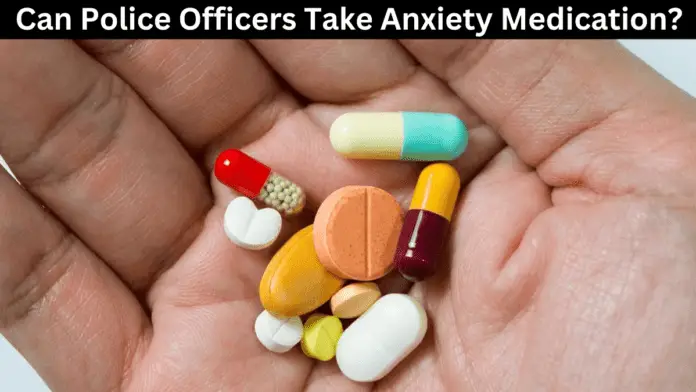
In a high-stress profession like law enforcement, it’s natural to wonder, “Can police officers take anxiety medication?” As mental health becomes a more prominent topic in society, it’s crucial to address the unique challenges faced by those in the line of duty. In this comprehensive guide, we’ll explore whether police officers can take anxiety medication, how it may affect their job performance, and alternative methods for managing stress.
Understanding Anxiety and Its Impact on Police Officers
Anxiety is a natural response to stress, but when it becomes excessive or persistent, it can interfere with everyday life. Police officers are exposed to high levels of stress daily, making them prone to experiencing anxiety disorders. Some common symptoms of anxiety include:
- Excessive worry
- Fatigue
- Irritability
- Difficulty concentrating
- Sleep disturbances
The impact of anxiety on police officers can be substantial, leading to decreased job performance, strained relationships with colleagues, and an increased risk of developing other mental health issues such as depression or PTSD.
Read: Can You Go to the ER for Anxiety?
Can Police Officers Take Anxiety Medication?
The short answer to the question, “Can police officers take anxiety medication?” is yes, they can. However, there are certain factors and restrictions that come into play.
Police departments generally have policies in place that allow officers to take prescribed medications for medical conditions, including anxiety disorders. The key is that these medications must be prescribed by a licensed healthcare professional and not impact the officer’s ability to perform their duties safely and effectively.
Before starting any medication, it is crucial for officers to consult with their department’s medical personnel or human resources department to disclose their condition and discuss the potential implications of taking anxiety medication while on duty.
Potential Side Effects of Anxiety Medication
While anxiety medications can provide relief for many individuals, they also come with potential side effects that may affect an officer’s job performance. Some common side effects include:
- Drowsiness
- Dizziness
- Impaired cognitive function
- Slowed reaction times
- Nausea
It’s essential for police officers to work closely with their healthcare provider to monitor and manage these side effects, ensuring that their ability to perform their duties is not compromised.
Alternative Methods for Managing Stress and Anxiety
In addition to medication, there are various alternative methods police officers can explore to manage stress and anxiety. Some options include:
- Therapy: Cognitive-behavioral therapy (CBT) and other forms of counseling can help officers develop healthy coping mechanisms and address the underlying causes of anxiety. Read: Does CBD Help With OCD?
- Mindfulness practices: Techniques such as deep breathing exercises, meditation, and progressive muscle relaxation can help reduce stress and promote relaxation.
- Physical activity: Regular exercise has been shown to have a positive impact on mental health, including reducing anxiety levels.
- Adequate sleep: Prioritizing healthy sleep habits is essential for overall well-being and can help mitigate anxiety symptoms.
FAQs
Q: Can police officers take anxiety medication while on duty?
A: Yes, police officers can take anxiety medication while on duty, provided it is prescribed by a licensed healthcare professional and does not interfere with their ability to perform their job safely and effectively.
Q: How can police officers manage stress and anxiety without medication?
A: Alternative methods for managing stress and anxiety include therapy, mindfulness practices, regular exercise, and prioritizing healthy sleep habits.
Q: What are the potential side effects of anxiety medication for police officers?
A: Some common side effects of anxiety medication that may impact a police officer’s job performance include drowsiness, dizziness, impaired cognitive function, slowed reaction times, and nausea.
Conclusion
In conclusion, police officers can take anxiety medication under specific guidelines and with proper monitoring. It’s crucial for officers to work closely with their healthcare providers and department personnel to ensure their mental health is prioritized while maintaining their ability to perform their duties safely and effectively.












